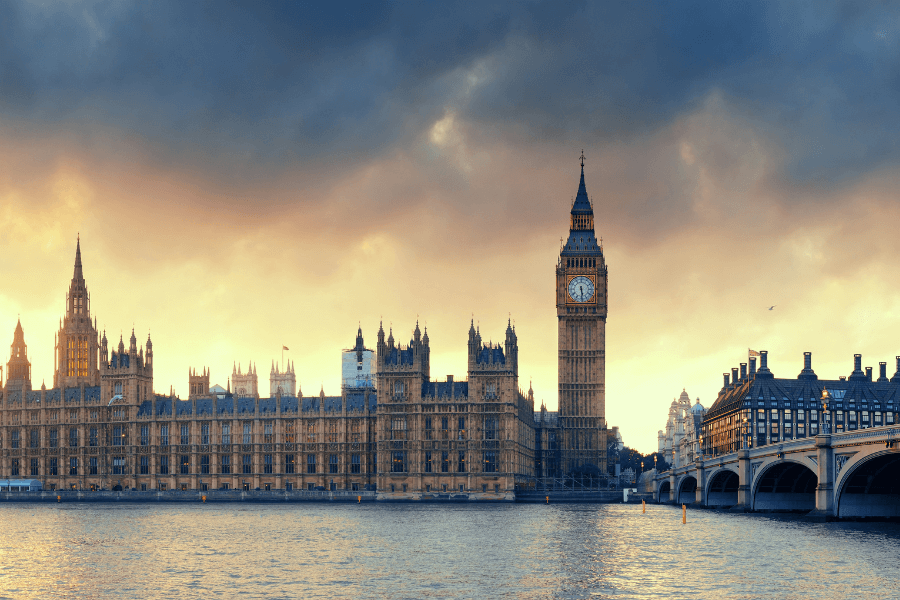
Sarah Longlands from the Centre for Local Economic Strategies (CLES) and Eleanor Radcliffe, formerly CLES and now at Carbon Coop, discuss how local authorities across the UK are plugging the gap left by central governments in their efforts to tackle the climate crisis.
This blog was first posted on the CLES blog site and in the Municipal Journal. CLES are part of the Partnership Delivery Team for the Local Policy Innovation Partnership (LPIP) Hub.
At a time when both Westminster and the Scottish Government have U-turned on their climate commitments, local governments across the UK are plugging the gap in their efforts to tackle the climate crisis. However, while localities recognise that climate action will be one of the critical factors shaping our places so that they are fit for the future, this work often goes under the radar, under-appreciated and under-funded.
Local authorities are taking action on climate because they know it’s the right thing for their places and not, as one officer put it, “because the government is allowing us to.”
Research by CLES published last week shows there are many localities where councils are taking the lead to deliver and co-ordinate climate action which not only aims to decarbonise faster than the government’s net zero target of 2050 but also seeks to achieve broader progressive social and economic goals in the process.

“delivering net zero is a huge opportunity to rewire the way […] economies work”
Many of the local and regional governments we spoke with are not only seeking to achieve their decarbonisation targets but also recognise that delivering net zero is a huge opportunity to rewire the way their economies work. From green skills development in Lancaster, modular council housing in Lewes, innovative models to deliver energy transition in Oldham through to climate juries in Preston, councils are on the path to net zero despite Westminster’s failure to lead the way.
The green transition is a chance to ensure that the economic benefits of investment in climate action make a significant impact on local places. This is particularly possible if there is a deliberate and sustained effort to capture this wealth and drive it to deliver against local priorities. While shifting the dial on our national approach to the economy is a significant challenge, at the local level, divergence from a “growth at any cost” model is much more possible.
However, progress being made to deliver on these ambitions at the local level should not be seen as evidence of a working system. Rather, it demonstrates how local and regional governments are doggedly trying to make progress within a challenging context.
“we desperately need to deliver decarbonisation in a way that retains wealth”
Innovative work to tackle the climate crisis is being curtailed as austerity continues to bear down on local government finances. Simultaneously, the competitive and short-term nature of the funding pots available both pits councils against each other and actively frustrates the development of the local skills and supply chains we desperately need to deliver decarbonisation in a way that retains wealth within our local economies.

This is exacerbated by a centralising force in Westminster and an unstable national policy landscape. Those we spoke to described how the centralisation of powers is preventing long-term planning for climate action across different spatial levels of government. The changing direction of policy is causing problems for businesses and skills providers who are looking to Westminster for clarity of intent. Inconsistency in skills planning is hampering the further education sector’s ability to provide the training needed for an effective skills pipeline. All of these factors leave local governments struggling to drive climate action at the pace and scale needed.
Less obvious is the challenge of joining up priorities within local government – particularly across economic development and climate. Often these are not seen as natural allies, but connecting the two will be critical to delivering the best outcomes from climate action for our places.
“a critical factor in delivering climate action”
Even without these challenges, local governments shouldn’t expect to deliver on their climate ambitions alone. In recent months, there has been renewed interest in a return to Total Place with calls for public money to work more explicitly in the interests of local communities. This resonates strongly with the work CLES has been doing on place-based anchor partnerships which bring public “anchor” organisations around the table to align priorities and, most importantly, use their economic power to shape their place. Partnerships like these are a critical factor in delivering climate action, and harnessing this power for collaborative action on climate change could be transformative.
Simultaneously, there is growing recognition of the importance of working with local communities to deliver climate action – particularly those at the sharp end of economic disadvantage and financial extraction. Places doing this well – such as Oldham and Preston – are keen to create space for communities not only to take shared ownership of the decisions around climate action in their area, but also ownership of the wealth that climate action can, and must, generate for the future.
“create the fertile ground our places need”
However, within this context of concerted action at the local level, the disconnect between the increasingly visible impacts of the climate crisis and the inertia within the UK Government has never been more stark. It is clear that local governments are making progress in growing innovative policies and practices through the cracks of a broken system but with little water and no light. Imagine what would be possible if Westminster decided to create the fertile ground our places need to pursue climate action which can not only decarbonise but also rewire, our local economies so that they benefit people and places, as well as the planet.
This blog was written by Sarah Longlands and Eleanor Radcliffe, Centre for Local Economic Strategies (CLES).
Find out more about the Local Policy Innovation Partnership Hub.
Disclaimer:
The views expressed in this post are those of the authors and not necessarily those of City-REDI, WMREDI or the University of Birmingham.
